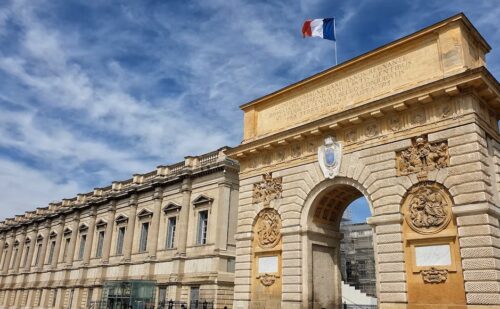EU Leaders’ meeting on education and culture
By Aoileann Ní Bhroin
Posted: 17 November, 2017
As Heads of Government of EU member states, including Taoiseach Leo Veradkar, gather in Gothenburg, the EC has set out its vision for how we can create a European Education Area by 2025.
The ideas formulated are intended as a contribution to the EU Leaders’ meeting on 17 November 2017 in Gothenburg, where they will discuss the future of education and culture. The Commission believes that it is in the shared interest of all Member States to harness the full potential of education and culture as drivers for job creation, economic growth and social fairness as well as a means to experience European identity in all its diversity.
Vice-President for Jobs, Growth, Investment and Competitiveness, Jyrki Katainen said: “A collective effort would enable Europe as a whole to shape its future, deal better with the challenges it is facing and to become more resilient. One of Europe’s greatest achievements was to build bridges across our continent with the creation of an area of free movement for workers and citizens. But there are still obstacles to mobility in the area of education. By 2025 we should live in a Europe in which learning, studying and doing research is not hampered by borders but where spending time in another Member State to study, learn or work is the norm.“
Commissioner for Education, Culture, Youth and Sport, Tibor Navracsics, said: “As we look to Europe’s future, we need to equip ourselves with an ambitious, shared agenda for how we can use culture and learning as a driver for unity. Education is key, because it is education that equips us with the skills we need to become active members of our increasingly complex societies. It is education that helps us adapt to a rapidly changing world, to develop a European identity, to understand other cultures and to gain the new skills one needs in a society that is mobile, multicultural and increasingly digital.“
Meeting in Rome in March 2017, Europe’s leaders committed to creating a “Union where young people receive the best education and training and can study and find jobs across the continent.” The Commission believes that education and culture can be an important part of the solution in tackling the challenges of an ageing workforce, continued digitalisation, future needs for skills, the need to promote critical thinking and media literacy in an era where “alternative facts” and disinformation can proliferate online, as well as the need to foster a greater sense of belonging in face of populism and xenophobia.
A European Area of Education should include:
- Making mobility a reality for all: by building on the positive experiences of the Erasmus+ programme and the European Solidarity Corps and expanding participation in them as well as by creating an EU Student Card to offer a new user-friendly way to store information on a person’s academic records;
- The mutual recognition of diplomas: by initiating a new ‘Sorbonne process’, building on the “Bologna process”, to prepare the ground for the mutual recognition of higher education and school leaving diplomas;
- Greater cooperation on curricula development: by making recommendations to ensure education systems impart all the knowledge, skills and competences that are deemed essential in today’s world;
- Improving language learning: by setting a new benchmark for all young Europeans finishing upper secondary education to have a good knowledge of two languages in addition to their mother tongue(s) by 2025;
- Promoting lifelong learning: by seeking convergence and increasing the share of people engaging in learning throughout their lives with the aim of reaching 25% by 2025;
- Mainstreaming innovation and digital skills in education: by promoting innovative and digital training and preparing a new Digital Education Action Plan;
- Supporting teachers: by multiplying the number of teachers participating in the Erasmus+ programme and eTwinning network and offering policy guidance on the professional development of teachers and school leaders;
- Creating a network of European universities so that world-class European universities can work seamlessly together across borders, as well supporting the establishment of a School of European and Transnational Governance;
- Investing in education: by using the European Semester to support structural reforms to improve education policy, using EU funding and EU investment instruments to fund education and setting a benchmark for Member States to invest 5% of GDP in education.
- Preserving cultural heritage and fostering a sense of a European identity and culture: by developing – using the momentum of the 2018 European Year of Cultural Heritage – a European Agenda for Culture and preparing a Council Recommendation on common values, inclusive education and the European dimension of teaching.
- Strengthening the European dimension of Euronews, which was created in 1993 by a number of European public broadcasters, with the ambition of having a European channel offering access to independent, high quality information with a pan-European perspective.
Background
The primary responsibility for education and culture policies lies with the Member States, at national, regional and local levels. However, the European Union has played an important complementary role over the years. This is particularly true when it comes to cross-border activities. For instance, after 30 years in operation, the Erasmus programme (Erasmus+ since 2014) has enabled 9 million people to study, train, teach, or volunteer in another country.
Over the past decade, the European Union has also developed a series of ‘soft policy’ tools to help Member States in the design of national education policies. Since 2000, Member States have been cooperating under the ‘Framework for European cooperation in education and training’ which set common objectives and benchmarks.
In 2010, the EU set itself two education targets under the Europe 2020 Strategy where real progress has already been attained. Early school leaving has been reduced from 13.9% in 2010 to 10.7% in 2016, with the target to reach 10% by 2020. And tertiary educational attainment is up to 39.1% in 2016 from 34% in 2010, with the target of 40% by 2020.
The Commission believes it is now time to build on these foundations and greatly step up our ambition.
To steer this reform and to stimulate discussion as Europe looks to its future, President Juncker proposed in his State of the Union Address of 13 September 2017 a Roadmap for a More United, Stronger and More Democratic Union. The meeting in Gothenburg on 17 November 2017 will be the opportunity for leaders to discuss the strengthening of European identity through education and culture.
For More Information
A series of Factsheets on strengthening European Identity through Education and Culture


